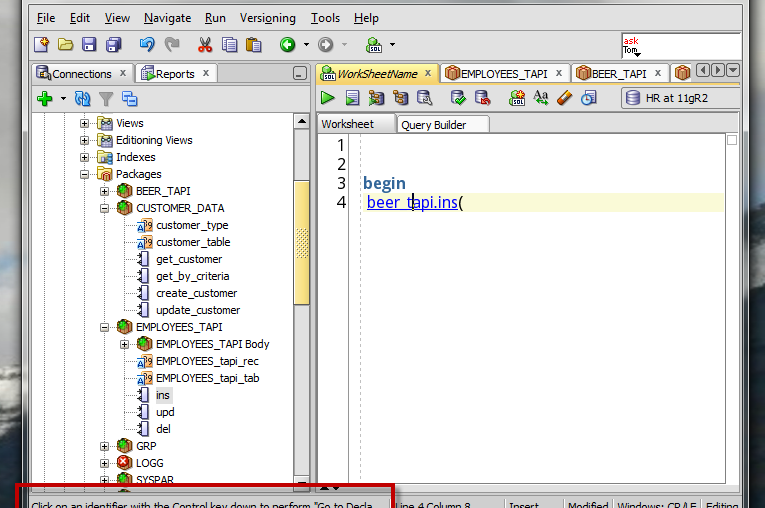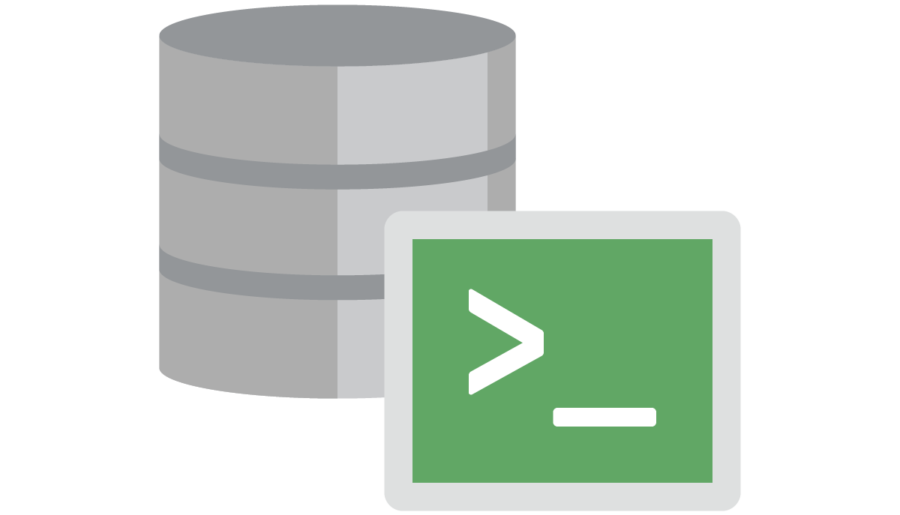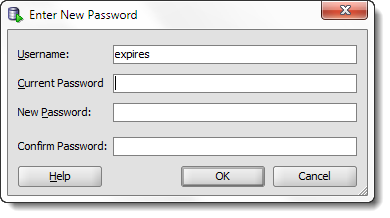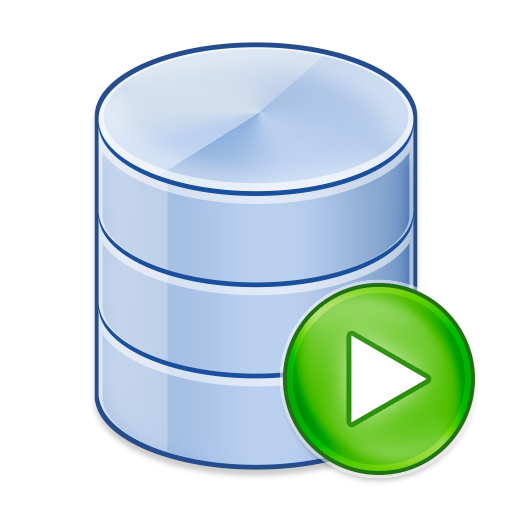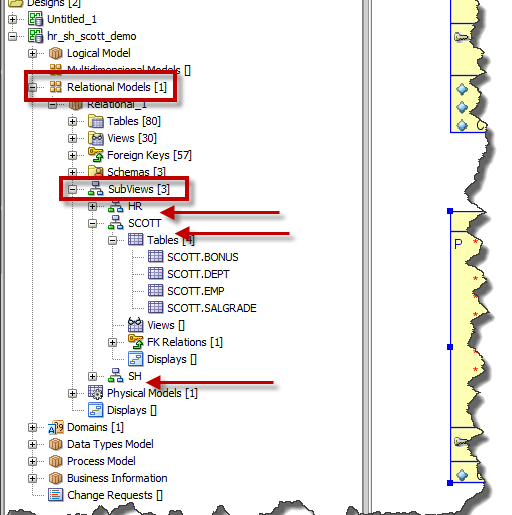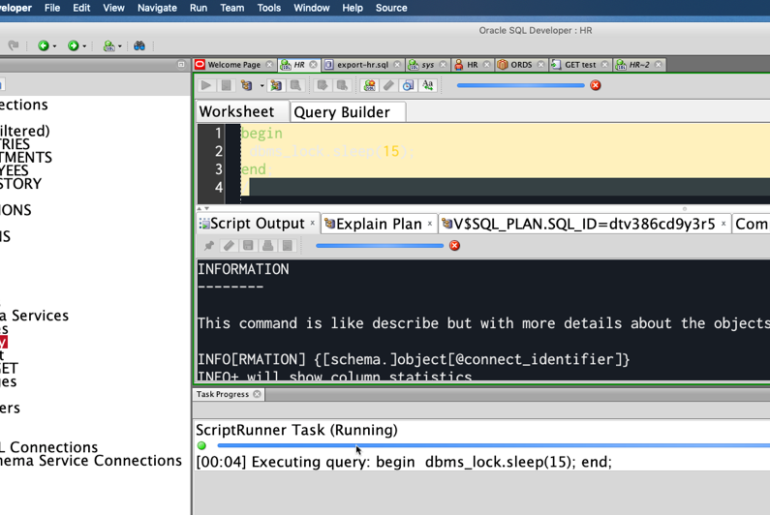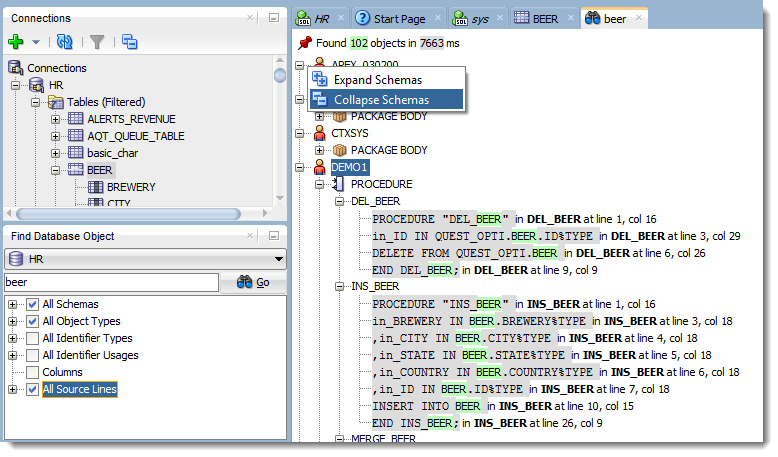If you’re browsing your packages using the Connections panel, you have a nice tree navigator to click around your packages and your variable, procedure, and functions. But What if you drill into your PL/SQL source from the worksheet and don’t have the Tree expanded? Let’s say you’re working on your script, something like – So I need to reacquaint myself with just what my beer package requires, so I’m going to drill into it by…
